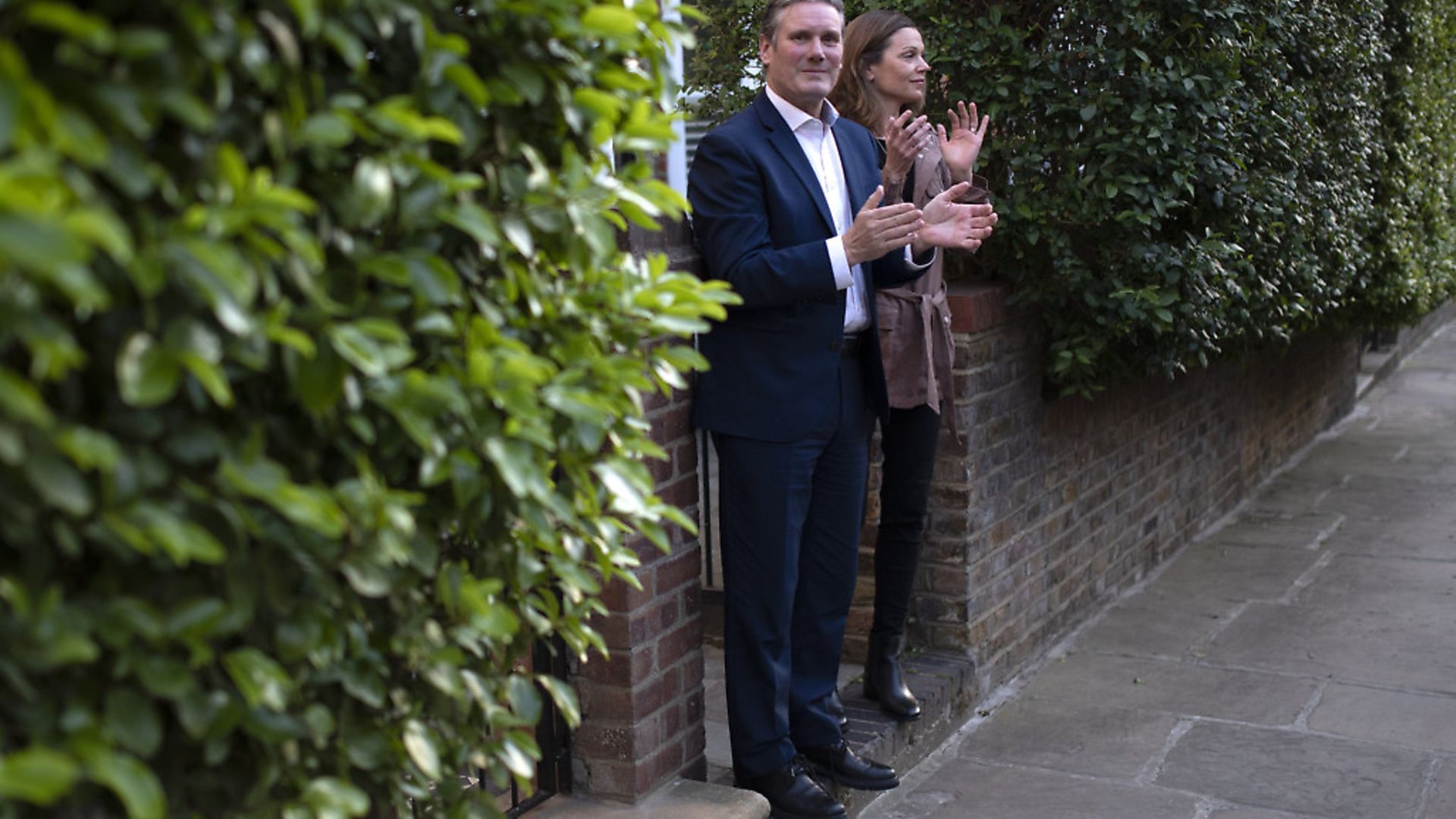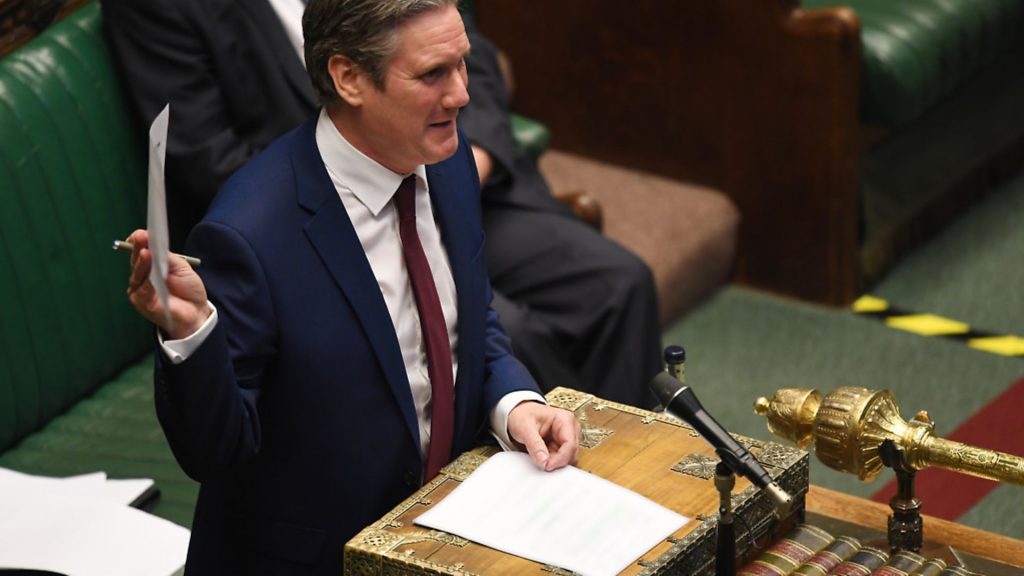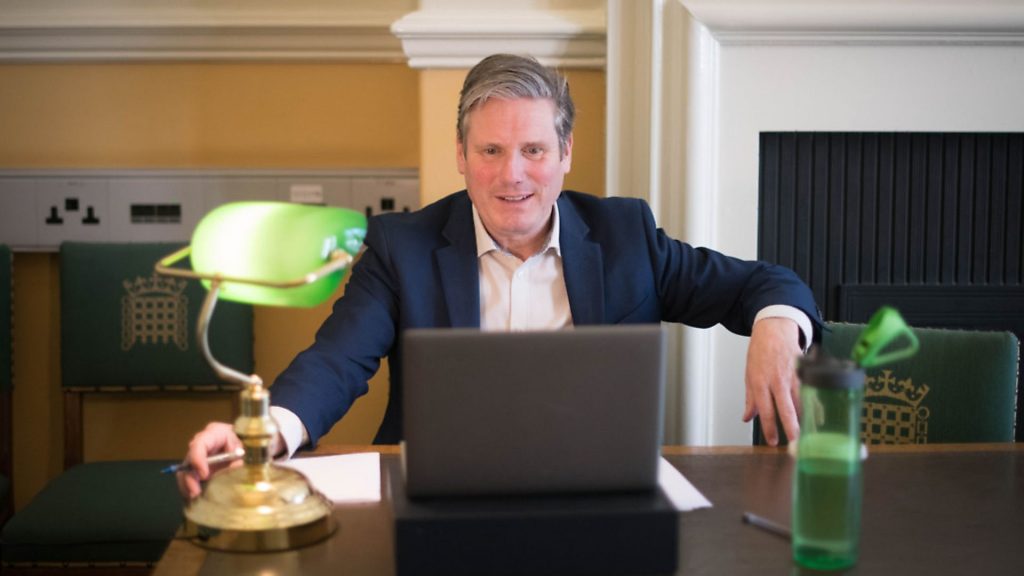
Labour has refound its mission as ministers get used to the new normal, argues JAMES BALL.
Sunday mornings cannot be fun for anyone in professional politics, particularly if you’re affiliation is with the Labour Party – what for others is a leisurely scan of the paper over breakfast is for you a nerve-wracking assessment of whether your political career has just been ended.
This is especially true for any Labour leader, who will face a bigger onslaught than most. So last Sunday must have come as a blessed relief for Keir Starmer, six weeks into his new job, as the Mail on Sunday took a shot at his background.
During his previous career as a barrister, the newspaper revealed, Starmer had – wait for it – bought a field next to the home of his disabled mother. What’s more, he had kept donkeys in it, as a sanctuary, because his mum liked donkeys.
But there are more: they also revealed that if the field had planning permission (it did not) and multiple homes were built on it (there were no plans to do so) the field could be worth as much as £10 million – just as a lottery ticket could be worth as much as £15m, if it’s got the right numbers on it.

The swing-and-a-miss Mail on Sunday scoop – which also suggested they’d underestimated their own readers, and older Brits’ affection for donkeys – is the latest in a string of good fortune for Labour’s leader.
Starmer has had the prime minister on the ropes at prime minister’s questions, managed to secure favourable front-page coverage in the newspaper Boris Johnson until very recently wrote for, and has seen his own favourability and his party’s polling scores improve. Those on the left and the centre-left – perhaps desperate for good news after a grim few months (or few years) – are daring to hope Starmer might have a chance as a credible opposition leader.
Such hope might be premature. Six weeks is still squarely in the political honeymoon period, the coronavirus crisis has quashed any chances of a new leadership tour, or space for new policy initiatives, and to much of the country – and even his own party’s activists – Starmer remains something of an unknown quantity. But there’s no denying he’s off to a good start.
You could make the case that Starmer has inherited an absolutely terrible hand as Labour leader. His party has been so riven with rows over institutional anti-Semitism that he will soon have to respond to an official report by the Equality and Human Rights Commission into its conduct.
The party’s chaotic attempts to respond to that investigation – and the leaking of an internal report – has left Labour facing numerous legal cases, and hundreds of thousands in potential payouts and costs. Starmer becomes leader against a government with a majority of 80, with his own party at its worst result since 1935, and his own activist base bitterly divided and on the lookout for ‘betrayal’.
So far, so terrible. And yet this backdrop, handled properly, could work in Starmer’s favour. At the most basic level, things couldn’t really get much worse – and it will be difficult to paint Starmer with the failings of his predecessor if Corbyn supporters are simultaneously attacking him for betrayal, or for disowning his predecessor’s sacred cows.
And as someone who has only been an MP since 2015, and who has spent most of his time since as a shadow minister, he has no long government record, or even voting record as an MP, to be held against him.
Most straightforwardly, though, Starmer’s predecessor as leader of the opposition was rarely the face of political opposition to the government over most of his tenure. The biggest political issue from 2016 through to the early days of coronavirus was Brexit.

Neither Jeremy Corbyn nor the Labour frontbench were ever at the forefront of holding the government’s feet to the fire over that. Most of the media attention, and most of the nerve-wracking vote counts, starred Conservative rebels. Despite being at the head of the largest voting bloc of MPs during a hung parliament, Labour became a largely quiet supplier of votes – not the face of holding government to account.
That long absence gives Starmer the latitude to shape the opposition role to suit his style – whatever hits he lands, especially early on, will seem impressive and novel simply because no-one is used to seeing them. The bar for success is quite low, and the government is out of practice in responding to an aggressive opposition.
In that lies opportunity, but it has to start with realism. The government has a majority of 80 – Starmer is unlikely to manage to inflict legislative defeat upon it – we are unlikely to see the series of nailbiting votes we have got used to in recent years. That narrows the range of tactics available to Starmer and his team, but does allow them to focus.
It is eminently possible for oppositions to change the course of governments with big majorities. This can be done through the media, through forcing votes that will make MPs who vote for them look bad (great for local campaigns at the next election), and through grassroot groups.
Have your say
Send your letters for publication to The New European by emailing letters@theneweuropean.co.uk and pick up an edition each Thursday for more comment and analysis. Find your nearest stockist here or subscribe to a print or digital edition for just £13. You can also join our readers' Facebook group to keep the discussion and debate going with thousands of fellow pro-Europeans.
Where the government isn’t tied to particular policies, these can easily secure U-turns. Tony Blair’s first term was marked by huge protests and opposition action that led him to change course despite a three-figure majority – on fuel duty, helping to spark decades with minimal hikes.
A smart opposition chooses to pick its battles – on what issues can it make the government look bad on, where can it secure concessions, resignations or show up wrongdoing, how can it put itself at the forefront of existing movements, and which of these appeal to voters who might put a cross in Labour’s box next time round?
Governments by their nature have to do a lot of things which will be unpopular among at least some of the constituents they serve. A savvy opposition exploits that tactically, without losing sight of what they want their overall image to be.
Starmer is showing himself to be opportunistic in the good way: he secured positive coverage on the front page of the Telegraph by tying the issue of social care to VE-Day. He has changed his approach on coronavirus as the facts (and public opinion) have shifted – from pressuring for a plan on lockdown, to asking about handling of the crisis itself.
He seems equipped for the role of reducing a government’s power to do whatever it wants by creating political cost for it.
The next step is the one he hasn’t yet had chance to demonstrate. Opposition’s real power in all of these things comes from its ability to be seen as a threat. Even if an election is years away, governments don’t want to lose councils, MSPs, mayoralties or more. MPs start eyeing up their re-election prospects. Ministers don’t want to lose their offices.
The unspoken question for any voter seeing a leader of the opposition challenging a prime minister is ‘do I think he’d be better than the other guy?’. That comes down to how they come across personally, how well they hold government to account, and what people think they stand for.
The public bought into Tony Blair’s New Labour wholesale, for three terms of comfortable majorities. Cameron’s ‘hug a hoodie’ image – of a Conservative without the hard edges – cut through enough to get him to Number 10. Ed Miliband’s ‘predistribution’ didn’t cut through, and Corbyn’s perceived ‘nationalise, tax, and spend’ agenda fell flat at the ballot box too.
A manifesto that doesn’t get you elected is nothing more than chip paper, after all.
Boris Johnson got elected offering voters Brexit and Conservatism without the austerity. What does Starmer plan to offer instead?










